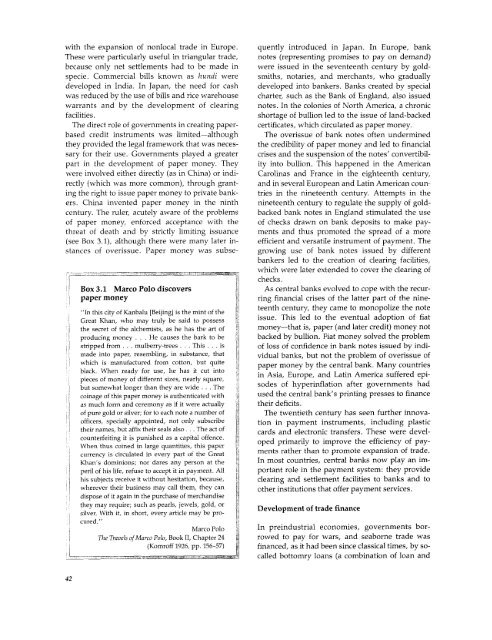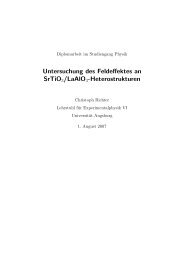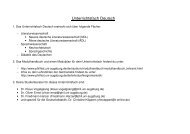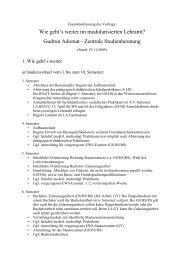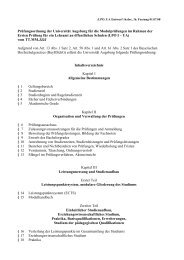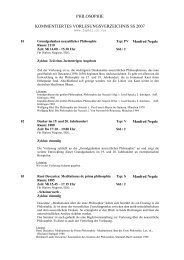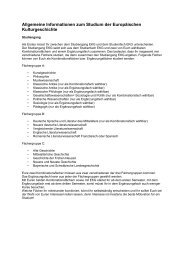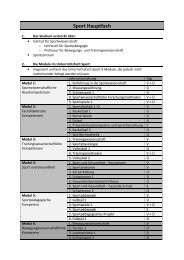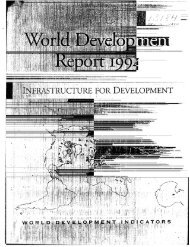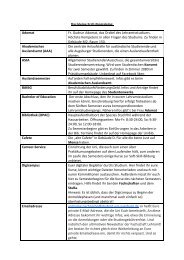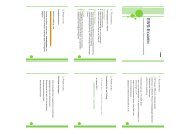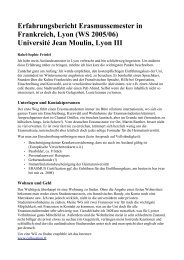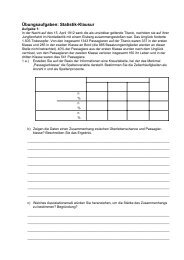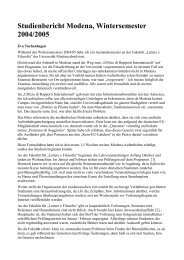Financial systems and development
Financial systems and development
Financial systems and development
Create successful ePaper yourself
Turn your PDF publications into a flip-book with our unique Google optimized e-Paper software.
with the expansion of nonlocal trade in Europe. quently introduced in Japan. In Europe, bank<br />
These were particularly useful in triangular trade, notes (representing promises to pay on dem<strong>and</strong>)<br />
because only net settlements had to be made in were issued in the seventeenth century by goldspecie.<br />
Commercial bills known as hundi were smiths, notaries, <strong>and</strong> merchants, who gradually<br />
developed in India. In Japan, the need for cash developed into bankers. Banks created by special<br />
was reduced by the use of bills <strong>and</strong> rice warehouse charter, such as the Bank of Engl<strong>and</strong>, also issued<br />
warrants <strong>and</strong> by the <strong>development</strong> of clearing notes. In the colonies of North America, a chronic<br />
facilities.<br />
shortage of bullion led to the issue of l<strong>and</strong>-backed<br />
The direct role of governments in creating paper- certificates, which circulated as paper money.<br />
based credit instruments was limited-although The overissue of bank notes often undermined<br />
they provided the legal framework that was neces- the credibility of paper money <strong>and</strong> led to financial<br />
sary for their use. Governments played a greater crises <strong>and</strong> the suspension of the notes' convertibilpart<br />
in the <strong>development</strong> of paper money. They ity into bullion. This happened in the American<br />
were involved either directly (as in China) or indi- Carolinas <strong>and</strong> France in the eighteenth century,<br />
rectly (which was more common), through grant- <strong>and</strong> in several European <strong>and</strong> Latin American couning<br />
the right to issue paper money to private bank- tries in the nineteenth century. Attempts in the<br />
ers. China invented paper money in the ninth nineteenth century to regulate the supply of goldcentury.<br />
The ruler, acutely aware of the problems backed bank notes in Engl<strong>and</strong> stimulated the use<br />
of paper money, enforced acceptance with the of checks drawn on bank deposits to make paythreat<br />
of death <strong>and</strong> by strictly limiting issuance ments <strong>and</strong> thus promoted the spread of a more<br />
(see Box 3.1), although there were many later in- efficient <strong>and</strong> versatile instrument of payment. The<br />
stances of overissue. Paper money was subse- growing use of bank notes issued by different<br />
bankers led to the creation of clearing facilities,<br />
i, _ ,_, : :! . __ ' which were later extended to cover the clearing of<br />
i 5, ;, =, t ,,~,_ .,__,<br />
' l 0, checks.<br />
Box 3.1 Marco Polo discovers<br />
As central banks evolved to cope with the recurpaper<br />
money V ring financial crises of the latter part of the nine-<br />
F<br />
"In this citv of Kanbalu [Beijing] is the mint of the teenth century, they came to monopolize the note<br />
Great Khan, who may truly be said to possess , issue. This led to the eventual adoption of fiat<br />
the secret of the alchemists, as he has the art of i money-that is, paper (<strong>and</strong> later credit) money not<br />
producing money .. . He causes the bark to be backed by bullion. Fiat money solved the problem<br />
stripped from ... mulberry-trees.. . This . is I of loss of confidence in bank notes issued by indiimade<br />
into paper, resembling, in substance, that L vidual banks, but not the problem of overissue of<br />
which is manufactured from cotton, but quite vipa ler money by the central bank. Many countries<br />
black. When ready for use, he has it cut into pr<br />
' . N m~~~i Asia, Europe, <strong>and</strong> Latin America suffered epipieces<br />
of money of different sizes, nearly square, i A<br />
but somewhat longer than they are wide ... The sodes of hyperinflation after governments had<br />
coinage of this paper money is authenticated with used the central bank's printing presses to finance<br />
as much form <strong>and</strong> ceremony as if it were actually their deficits.<br />
of pure gold or silver; for to each note a number of The twentieth century has seen further innovaofficers,<br />
specially appointed, not only subscribe tion in payment instruments, including plastic<br />
their names, but affix their seals also .. . The act of cards <strong>and</strong> electronic transfers. These were develcounterfeiting<br />
it is punished as a capital offence.<br />
When thus coined in large quantities, this paper oped primarly to improve the efficiency of paycurrency<br />
is circulated in every part of the Great ments rather than to promote expansion of trade.<br />
Khan's dominions; nor dares any person at the In most countries, central banks now play an imperil<br />
of his life, refuse to accept it in payment. All portant role in the payment system: they provide<br />
his subjects receive it without hesitation, because, F clearing <strong>and</strong> settlement facilities to banks <strong>and</strong> to<br />
wherever their business may call them, they can other institutions that offer payment services.<br />
dispose of it again in the purchase of merch<strong>and</strong>ise K<br />
they may require; such as pearls, jewels, gold, or Dt<br />
silver. With it, in short, every article may be procured."<br />
Marco Polo In preindustrial economies, governments bor-<br />
The Travels of Marco Polo, Book II, Chapter 24 ] rowed to pay for wars, <strong>and</strong> seaborne trade was<br />
IL (Komroff 1926, pp. 156-57) F financed, as it had been since classical times, by so-<br />
)j 5,called bottomry loans (a combination of loan <strong>and</strong><br />
42


